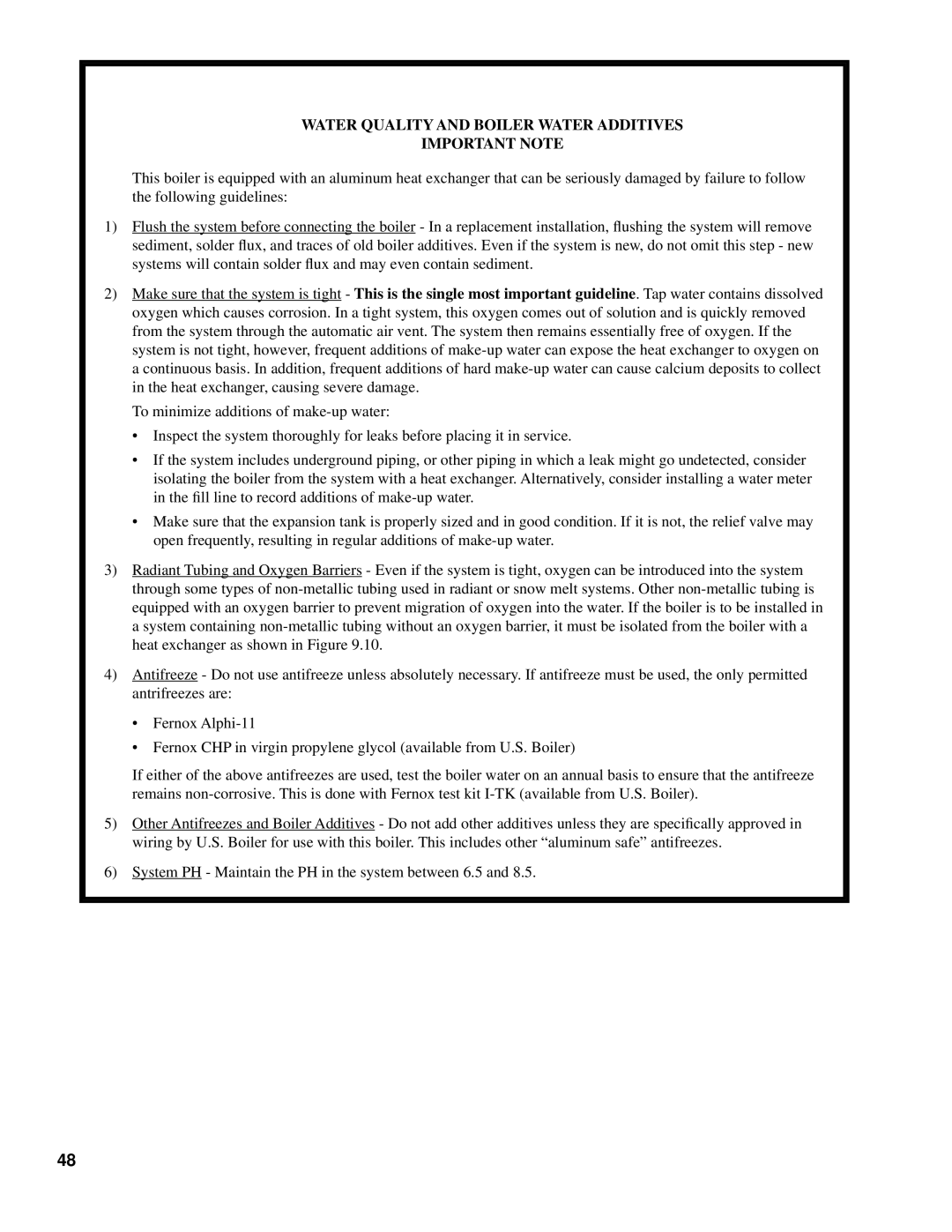
|
| WATER QUALITY AND BOILER WATER ADDITIVES | |
|
|
| IMPORTANT NOTE |
| This boiler is equipped with an aluminum heat exchanger that can be seriously damaged by failure to follow | ||
| the following guidelines: | ||
1) | Flush the system before connecting the boiler - In a replacement installation, flushing the system will remove | ||
|
| sediment, solder flux, and traces of old boiler additives. Even if the system is new, do not omit this step - new | |
|
| systems will contain solder flux and may even contain sediment. | |
2) | Make sure that the system is tight - This is the single most important guideline. Tap water contains dissolved | ||
|
| oxygen which causes corrosion. In a tight system, this oxygen comes out of solution and is quickly removed | |
| from the system through the automatic air vent. The system then remains essentially free of oxygen. If the | ||
|
| system is not tight, however, frequent additions of | |
| a continuous basis. In addition, frequent additions of hard | ||
|
| in the heat exchanger, causing severe damage. | |
| To minimize additions of | ||
|
| • Inspect the system thoroughly for leaks before placing it in service. | |
|
| • If the system includes underground piping, or other piping in which a leak might go undetected, consider | |
|
| isolating the boiler from the system with a heat exchanger. Alternatively, consider installing a water meter | |
|
| in the fill line to record additions of | |
|
| • Make sure that the expansion tank is properly sized and in good condition. If it is not, the relief valve may | |
|
| open frequently, resulting in regular additions of | |
3) |
|
| - Even if the system is tight, oxygen can be introduced into the system |
| Radiant Tubing and Oxygen Barriers | ||
|
| through some types of | tubing used in radiant or snow melt systems. Other |
|
| equipped with an oxygen barrier to prevent migration of oxygen into the water. If the boiler is to be installed in | |
| a system containing | ||
| heat exchanger as shown in Figure 9.10. | ||
4) | Antifreeze - Do not use antifreeze unless absolutely necessary. If antifreeze must be used, the only permitted | ||
| antrifreezes are: | ||
• Fernox
• Fernox CHP in virgin propylene glycol (available from U.S. Boiler)
If either of the above antifreezes are used, test the boiler water on an annual basis to ensure that the antifreeze remains
5)Other Antifreezes and Boiler Additives - Do not add other additives unless they are specifically approved in wiring by U.S. Boiler for use with this boiler. This includes other “aluminum safe” antifreezes.
6) System PH - Maintain the PH in the system between 6.5 and 8.5.
48
